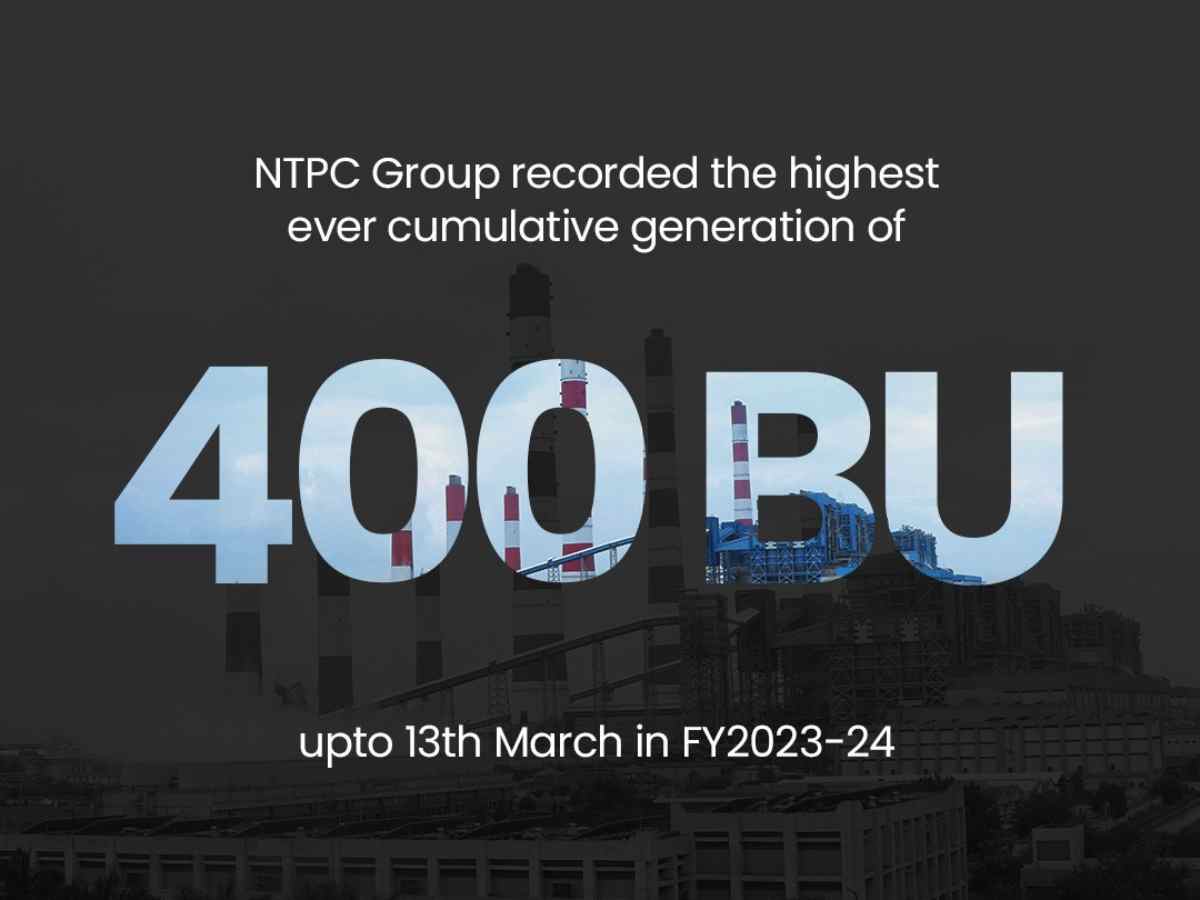NTPC Crosses 400 Billion Units of generation; Surpasses the generation achieved during FY 2022-23
Earlier during the year, the Company recorded the highest-ever single-day generation of 1428 MU on 1st September 2023.

Mumbai: NTPC Ltd, India's largest power generating company, crossed the 400 Billion Units (BU) of generation mark on 13th March 2024. During FY 2022-23, the company had generated 399.3 BU. Till 13th Mar 2023-24, NTPC Coal stations recorded a plant loading factor (PLF) of 77.06%.
Earlier during the year, the Company recorded the highest-ever single-day generation of 1428 MU on 1st September 2023.
Join PSU Connect on WhatsApp now for quick updates! Whatsapp Channel
Read Also : Dredging Corporation of India Signs MoUs with 16 organisationsThe stellar performance of NTPC units is a testimony to the expertise of NTPC engineers, Operation & Maintenance practices and systems.
Further, this accomplishment reinforces NTPC's commitment to delivering reliable and affordable power to the Nation.
While NTPC has an installed capacity of 75.4 GW, 18 GW capacity including 5 GW Renewables is under construction. The company is committed to achieve 60 GW of Renewable Energy capacity by 2032.
Along with power generation, NTPC has also ventured into various new business areas including e-mobility, Waste-to-Energy, and Green Hydrogen solutions and participated in the bidding for power distribution of Union Territories.
NTPC Ltd. is India's largest integrated power utility, contributing 1/4th of the power requirement of the country. With a diverse portfolio of thermal, hydro, solar, and wind power plants, NTPC is dedicated to delivering reliable, affordable, and sustainable electricity to the Nation.
The company is committed to adopting best practices, fostering innovation, and embracing clean energy technologies for a greener future.
Read Also : IIM Jammu hosts Bengaluru Roundtable Conference